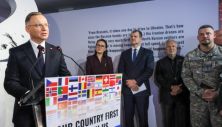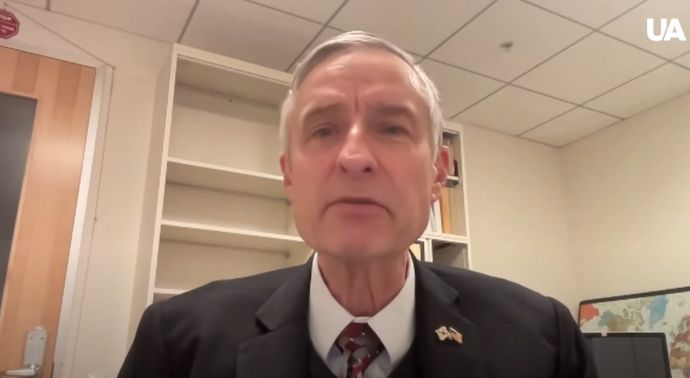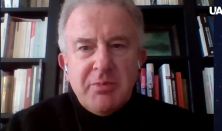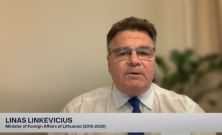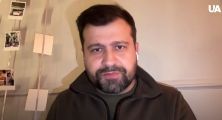Is DPRK gaining the actual battlefield experience? How likely is a direct military conflict between North and South? Should Ukraine turn South Korea into ‘more ally’ by giving Seoul DPRK POW? Ministry of Unification in South Korea – what is that? No one in big politics is concerned enough about DPRK troops fighting for Moscow as no one actually believes North Korea is strong enough militarily and economically – is that right?
Dr. Bruce Bennett, Senior Defence Analyst in RAND Corporation expert on Korea answers our questions.
— DPRK is gaining actual battlefield experience. This is what is happening now by deploying its troops to fight for Russia, and it is going to use this experience. How likely do you think is a direct military conflict between North and South Korea after all?
— Well, I think we have to first look at what kind of military experience the North Koreans are gaining. It’s not very useful. They’re doing massed attacks, cannon-fodder-type use of the North Korean troops. The pictures we’ve seen aren’t even really good mass attacks. So, I think at this stage, if I were Kim Jong-un, I would think that the Russians have betrayed him. They’re not training his troops to be effective in any particular combat situation. They’re instead using them as cannon fodder and wasting their use. They’ll learn some things about fighting on a battlefield, a modern battlefield, but if your tactics are terrible, you don’t learn very much.
— Absolutely. Well, there is not much experience in just going to Ukraine and dying there. But what now? I mean, maybe there is a way to turn South Korea to be in more of an ally mode by giving them what they want—I mean, those POWs. South Korea obviously says that it’s just one nation, Koreans, and they want them back, whatever “back” means in this case. So, shall Ukraine give these POWs to South Korea or not? What do you think?
— Oh, I think they should, very much. I think that would be an appropriate activity. Certainly, giving them back to Russia is not a great idea because those individuals will likely be killed promptly, as they’ve undoubtedly shared information with the Ukrainian authorities. Kim knows that, and he’s going to be furious at them. So, giving them to South Korea is a very smart idea. The problem now is with the political uncertainties in South Korea. It’s not clear how you make South Korea closer to Ukraine and support Ukraine. But certainly, starting with these soldiers would be a good start.
— Sorry for pushing you to that answer, but this is exactly the answer I wanted, actually, for myself and for my audience because they ask me questions from time to time. You’ve mentioned that Kim Jong-un is more or less betrayed by Russia. How exactly do you think he cares about the cannon fodder?
— Oh, I think he was anxious for his troops to learn about the modern battlefield, to develop new tactics. I mean, if you go back to the Cold War, the Russians, the Soviets, had some very interesting tactics that they potentially planned to use against NATO. The Russians haven’t figured those out yet for the modern battlefield in Ukraine. You look at their experience, and they’ve learned that all of their World War II massing tactics aren’t working in an environment with drones and all kinds of advanced firepower.
— Yeah, I mean, it’s 100 years of evolution. I thought they were almost 100 years behind. Why not look at that? But I have another question: the Ministry of Unification in South Korea that wants these individuals back—what is that? What is the Ministry of Unification? What do they do? Is that intelligence?
— No, no. There are several parts of the South Korean Constitution that identify unification as a requirement for North and South Korea. And so, the Ministry of Unification is one of the mandated organizations that tries to work on plans for unification, how it would be done. This is no easy task. If you face lots of Special Forces and other soldiers that would be in the country, you’ve got to make some kind of stabilization plan. You’ve got to have some concept of winning the elites over. And that’s, in theory, what they’re supposed to be doing.
— Right. Well, let’s talk about Western elites. My impression is that no one in big politics is actually concerned enough about DPRK troops fighting for Moscow, as no one actually believes North Korea is strong enough militarily and economically. Am I right?
— Well, I think there’s an element of that, but I think it’s also the case that the number of troops being sent is not very large. Kim is probably not very serious. If he were, he would have already sent replacement troops, given how many losses they’ve suffered. So, it’s not clear that this is anything other than a kind of token deployment to demonstrate that Kim supports the mutual defense agreement.
Note that Kim didn’t send troops that went to occupied Ukrainian territory so much as they went to Kursk.
And what lessons are they learning?
They’re learning a whole lot more about the use of ballistic missiles to hurt nations. And I think that’s the kind of lesson that Kim wants.
That’s how he would want to fight against South Korea—by killing civilians and destroying civilian infrastructure. So, these soldiers may not be all that important to Kim’s planning.
Read also: The World Is Watching and Waiting What Trump Will Do. Interview with Ivan Stupak
